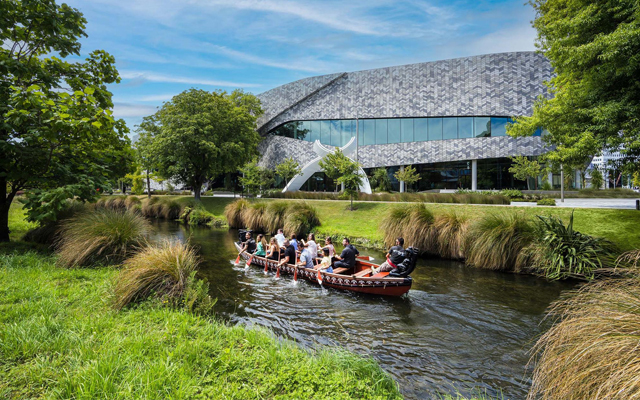
The first phase of ChristchurchNZ’s three-year Conference Legacy Project has revealed significant positive impacts from four international conferences held in Christchurch, New Zealand, in 2024.
The findings were presented earlier this week at AIME 2025 in Melbourne by Kath Low, head of visitor economy, ChristchurchNZ.

“We have seen some excellent results so far from the Christchurch conference surveys,” said Low. “These four conferences proved to be particularly strong facilitators of knowledge sharing and collaboration, driving scientific advancement and industry innovation.”
Delegates gave high ratings for scientific advancement, early career capabilities, and personal attendee impacts. A remarkable 89 per cent of respondents agreed the conferences facilitated knowledge-sharing and collaborations, while 85 per cent reported they were valuable platforms for advancing their fields.
One of the most striking findings was the conferences’ ability to attract global talent. A staggering 20 per cent of respondents reported actively seeking to relocate to Christchurch to live, work, and/or study. “Attracting global talent enriches the local workforce, drives economic growth, and fosters a culture of innovation that can propel industries forward,” the report stated.
“Ōtautahi Christchurch has a thriving business events ecosystem and we recognize that evidence-based information has the potential to catalyse innovation in priority sectors and contribute to solutions for environmental and social issues. The research is going to provide insights to generate funding, inform strategies and global marketing,” she said.
Respondents also gave high ratings for the inclusivity of the conferences, the strategies used to minimise environmental impacts, networking opportunities, and knowledge sharing. The conferences equipped delegates with new knowledge, ideas, and techniques, driving workplace innovation and benefiting communities.
“There is a changing dynamic in what it means to deliver a conference well. The next generation of industry leaders expect more and care more about the broader impact of the business events they attend,” Low noted.
Attendees also recognised Te Pae Christchurch Convention Centre’s net carbon zero certification and industry-leading environmental initiatives. Sixty-eight per cent of respondents noted that waste generation was minimised, 62 per cent agreed the venue choice reflected a commitment to environmental sustainability, and 64 per cent agreed the conferences were designed to minimise negative environmental impacts.
“We are early in the programme and the indicative trends are showing very positive results,” said Foley. “The next report will include a broader range of data from Wellington and Auckland. We are excited to see how this evolves as the dataset grows and we can dive deeper into the analysis from a whole of New Zealand perspective.”
This research was conducted by business events researcher Carmel Foley, professor of Business Events at the University of Technology, Sydney (UTS), and her colleague Anja Hergesell, the research, was supported by ChristchurchNZ and Tourism New Zealand.




















